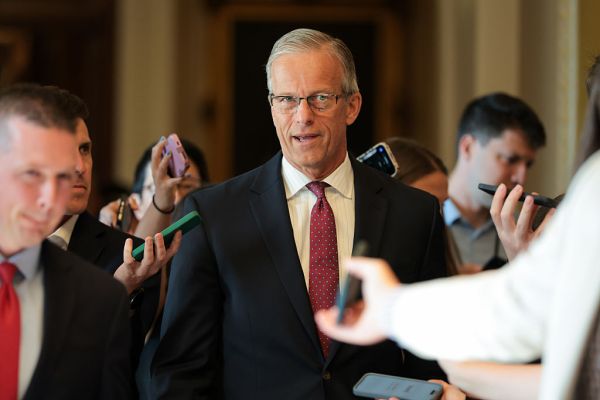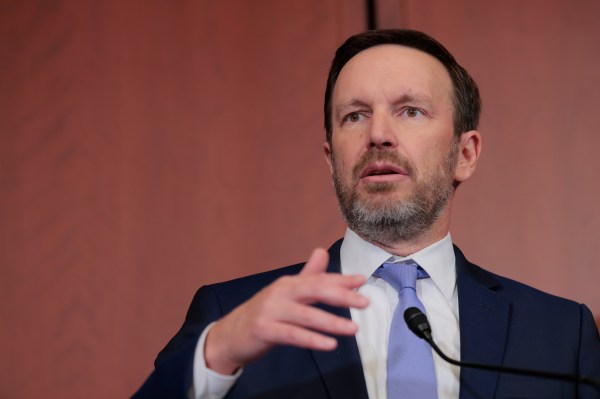There’s not much left to say about Tuesday night’s presidential debate, so I’ll dispense with my verdict quickly.
Donald Trump fared poorly because he behaved poorly. Trump went in with the goal of forcing Joe Biden into a viral, game-changing meltdown. If Trump had succeeded, his bluster and interruptions—which may have prevented precisely the Biden “senior moment” Trump sought— would have been worth it (politically speaking).
Biden went in with a Hippocratic priority: First, do no harm to his lead in the polls. Score the performances however you like, but Trump failed to achieve his strategic objective, and Biden succeeded in securing his. Everything else is spin, distraction, blame-shifting or simply irrelevant.
If Trump were inclined to take advice from me (spoiler: he’s not), I would tell him: “You have to be willing to disappoint your biggest fans.”
I’ve given this advice to young would-be pundits for years. And if I were a political consultant—a job I want about as much as a taste-tester job at an organic fertilizer factory—I’d give the same advice to clients.
The reasoning for this advice is twofold. First, I believe it’s an ethical or moral imperative. If you conclude that the truth is X but your fans want to hear Y, you’re obligated to tell the truth. You don’t have to cram X down your fans’ throats, but you can’t feed them Y without losing your integrity. But if you define your job as simply saying what your fans want to hear, you’re an entertainer or partisan activist, not a journalist or intellectual.
The second reason is more practical. If you want to make this your lifelong vocation, you need to protect your credibility. Fans can change their minds on a dime, and that’s fine. But if you’re a writer or commentator, you have something your audience doesn’t have: a track record on paper, pixels, or video. There’s nothing wrong with changing your mind when warranted. But if you change your views solely to pander to your audience, the only people who will find you credible are the people who don’t care about credibility.
Now, in fairness, some folks to whom I’ve given this advice haven’t followed it, and they’ve done quite well giving the customers what they want. I don’t think these people are helping the country or their cause, but if you don’t care about that and you’re really good at fan service, you can make a nice living—indeed a much better living than I’m making.
Politicians are a little different, of course. For most of them, the top priority is getting elected. That changes the equation. I don’t think it absolves them from the obligation to tell the truth—or the obligation to put the needs of constituents and the country ahead of their own—but you can see how seductive it might be to tell voters what they want to hear rather than what they need to hear. That illuminates why so many people distrust and dislike politicians.
What does this have to do with the debate? Trump cares about his fans more than any president in my lifetime. He doesn’t just care; he relies on them to give him ideas. Trump depends on rallies of cheering groupies to test-drive his slogans and priorities. They are a pool of Narcissus, reflecting back on him precisely what he wants to see.
When Trump can’t get sustenance from a crowd of superfans, he resorts to the next best thing: a coterie of TV and radio hosts and Twitter personalities who affirm and confirm everything he wants to be true. It’s a massive feedback loop. They tell him he’s the greatest and all the critics are evilly wrong, and in return he promotes and amplifies them. The result is that his worst attributes get amplified rather than corrected.
This is why Trump’s best friends are often his worst enemies. They tell him he doesn’t need to change even when they know his behavior is hurting him. Telling an unpopular politician to keep doing what makes him unpopular might make sense for a cable host who makes money pleasing the tiny sliver of the electorate that wants to hear that, but it’s terrible political advice.
The Trump we saw Tuesday night was a politician who takes advice from fans. If he were way ahead in the polls, that advice would still be wrong morally, but it would at least be sound politically. But he’s not ahead in the polls. And doubling down on fan service won’t change that.
Photograph by Melina Mara/Washington Pos/Getty Images.








Please note that we at The Dispatch hold ourselves, our work, and our commenters to a higher standard than other places on the internet. We welcome comments that foster genuine debate or discussion—including comments critical of us or our work—but responses that include ad hominem attacks on fellow Dispatch members or are intended to stoke fear and anger may be moderated.
With your membership, you only have the ability to comment on The Morning Dispatch articles. Consider upgrading to join the conversation everywhere.